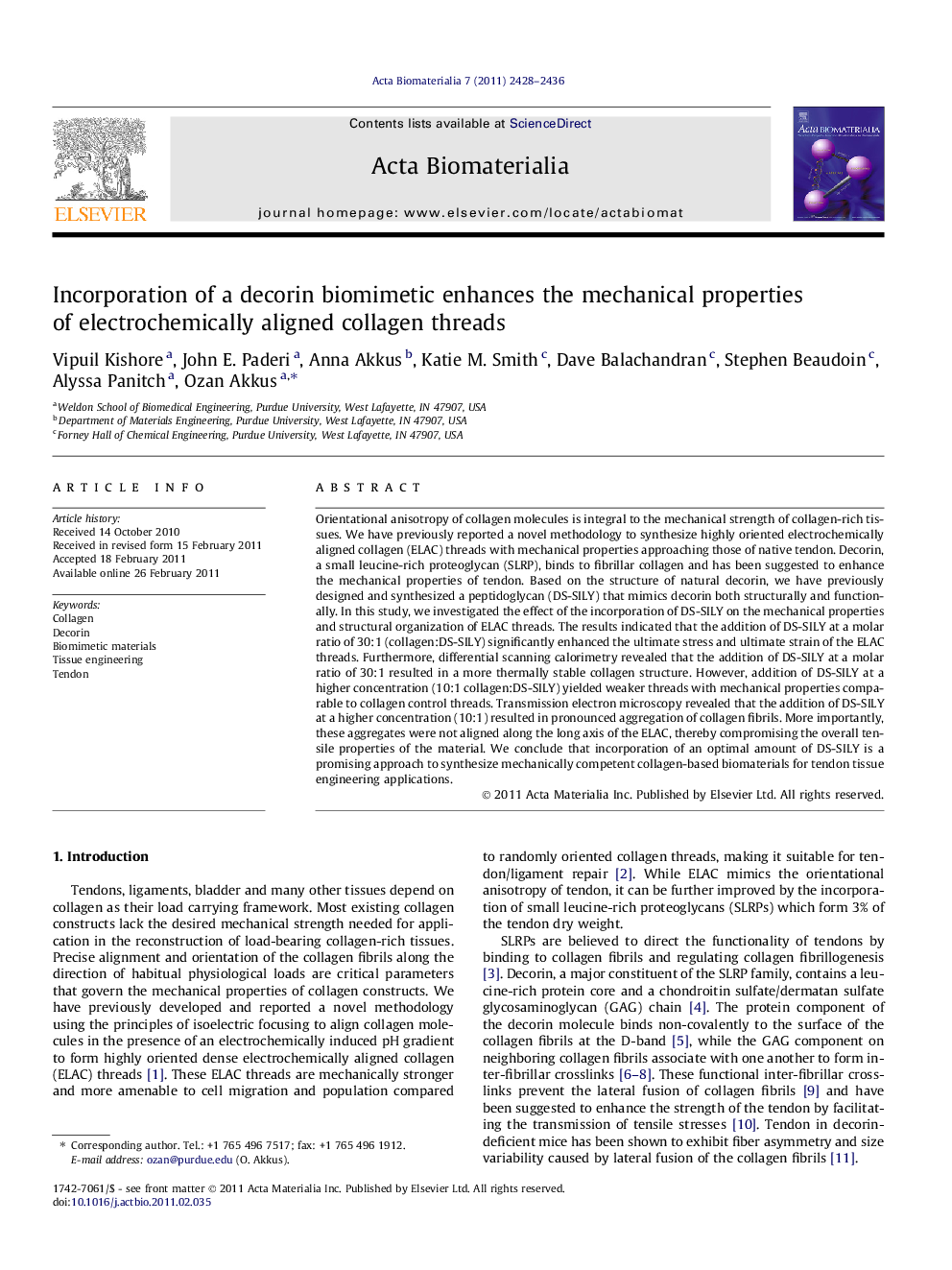| Article ID | Journal | Published Year | Pages | File Type |
|---|---|---|---|---|
| 1349 | Acta Biomaterialia | 2011 | 9 Pages |
Orientational anisotropy of collagen molecules is integral to the mechanical strength of collagen-rich tissues. We have previously reported a novel methodology to synthesize highly oriented electrochemically aligned collagen (ELAC) threads with mechanical properties approaching those of native tendon. Decorin, a small leucine-rich proteoglycan (SLRP), binds to fibrillar collagen and has been suggested to enhance the mechanical properties of tendon. Based on the structure of natural decorin, we have previously designed and synthesized a peptidoglycan (DS-SILY) that mimics decorin both structurally and functionally. In this study, we investigated the effect of the incorporation of DS-SILY on the mechanical properties and structural organization of ELAC threads. The results indicated that the addition of DS-SILY at a molar ratio of 30:1 (collagen:DS-SILY) significantly enhanced the ultimate stress and ultimate strain of the ELAC threads. Furthermore, differential scanning calorimetry revealed that the addition of DS-SILY at a molar ratio of 30:1 resulted in a more thermally stable collagen structure. However, addition of DS-SILY at a higher concentration (10:1 collagen:DS-SILY) yielded weaker threads with mechanical properties comparable to collagen control threads. Transmission electron microscopy revealed that the addition of DS-SILY at a higher concentration (10:1) resulted in pronounced aggregation of collagen fibrils. More importantly, these aggregates were not aligned along the long axis of the ELAC, thereby compromising the overall tensile properties of the material. We conclude that incorporation of an optimal amount of DS-SILY is a promising approach to synthesize mechanically competent collagen-based biomaterials for tendon tissue engineering applications.
